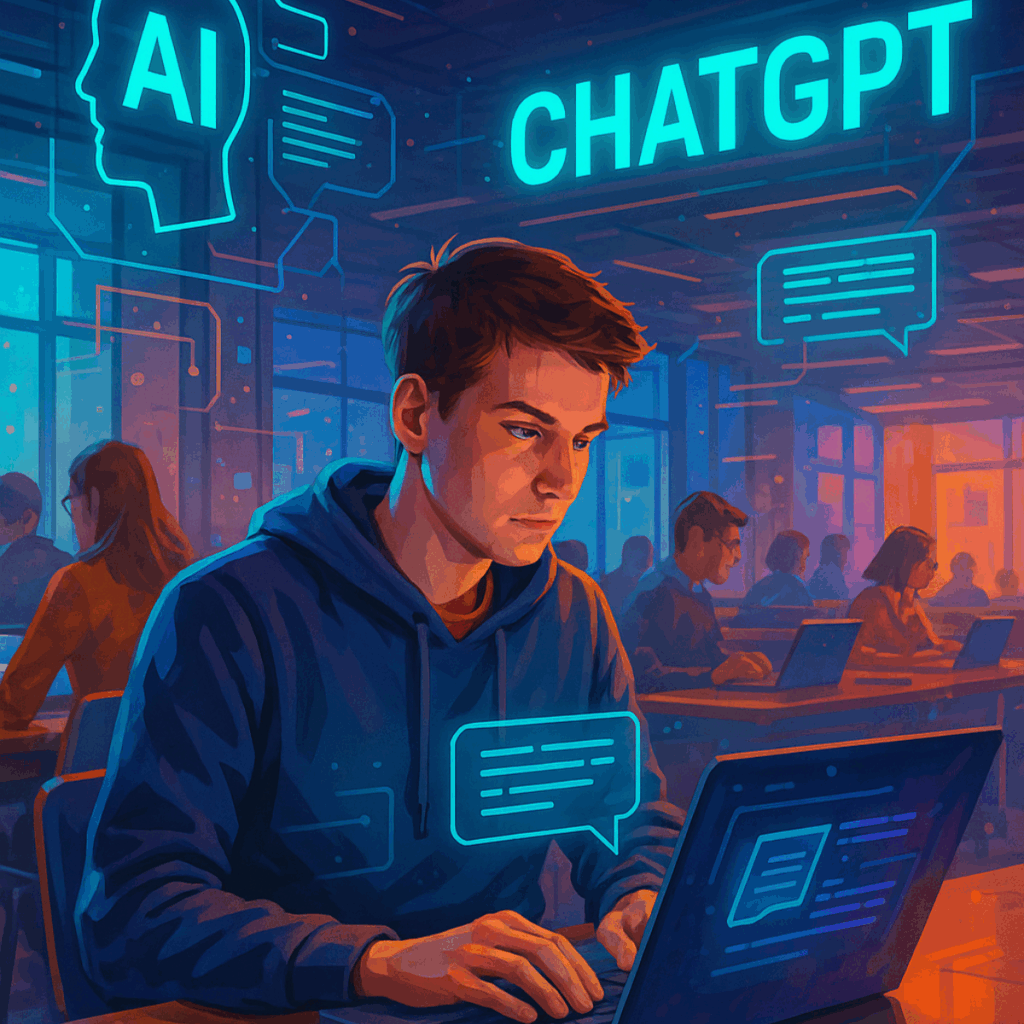Introduction
Large Language Models like ChatGPT are fast becoming part of the university experience—and not just for tech-savvy students. These tools can help with everything from generating essay ideas to making sense of complex topics. But as generative AI becomes more common in classrooms, questions around academic integrity, critical thinking, and equity are popping up everywhere.
What Greek Students Are Actually Doing
A recent survey involving 515 students from Greek universities* gives us valuable insights. A bit over a third said they feel fairly comfortable with the idea of artificial intelligence, but less than one in five use ChatGPT regularly for academic tasks. Those who do use it report significant benefits. Around three-quarters say it makes searching for information faster, and roughly two-thirds believe it has improved their writing by offering useful feedback.
Still, there are concerns. Nearly seven in ten students worry that relying on ChatGPT too much could weaken their critical-thinking skills. About six out of ten are also worried about plagiarism and the reliability of AI-generated content. Interestingly, usage varies: undergraduates lean more on ChatGPT for drafting and research compared to postgrads and doctoral candidates, and students with stronger digital skills are more likely to both be familiar with AI concepts and use these tools in meaningful ways. These mixed responses paint a picture of cautious optimism—students see the promise, but they’re also aware of the pitfalls.
What Students Need
It turns out that Greek students don’t just appreciate AI tools—they also want a roadmap for using them properly. Feedback from the survey shows strong demand for:
- Clear institutional policies defining the ethical use of AI and how it fits into academic integrity rules.
- Structured training sessions and technical support focusing both on ethical issues and practical AI usage.
- Transparent guidelines around authorship, data handling, and how much AI assistance is acceptable.
These aren’t extra—they’re essentials students believe are needed for responsible integration of AI into academic life.
How INFINITE Bridges the Gap
This is exactly where the INFINITE Erasmus+ project comes in. INFINITE is doing comprehensive desk and field research across multiple European countries to understand how AI is being used in universities. From that, they’ve created two major tools:
- AI Literacy Toolkit: A user-friendly bundle that includes real-world case studies, checklists, and a visual framework to help educators assess and choose AI tools for their teaching practices.
- AI Digital Hub: A practical online platform offering free AI-driven tools and examples aimed at professional development, teaching, learning, and assessment.
Thanks to this, Greek students’ calls for guidance and support are being met directly. Institutions adopting INFINITE’s tools can offer students a clear framework for AI use—building both trust and competence.
Final Thoughts
The picture from Greek universities is hopeful: students are curious and see value in ChatGPT, but they’re wary of its potential to undermine learning. INFINITE’s research-backed, user-friendly resources offer a smart answer. By combining empirical student feedback with structured toolkits and digital platforms, universities across Europe can ensure AI becomes a partner in education—not a shortcut that erodes its core values.
At the end of the day, AI is here to stay—and tools like INFINITE help us use it wisely, keeping critical thinking and academic integrity front and center.
*Source: Kostas, A., Paraschou, V., Spanos, D., Tzortzoglou, F., & Sofos, A. (2025). AI and ChatGPT in Higher Education: Greek Students’ Perceived Practices, Benefits, and Challenges. Education Sciences, 15(5), 605. https://doi.org/10.3390/educsci15050605

